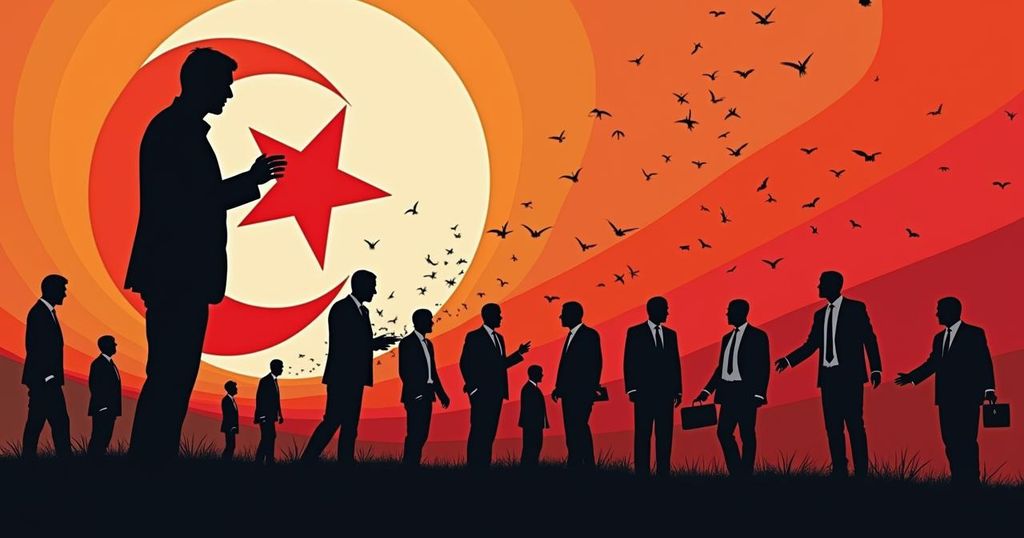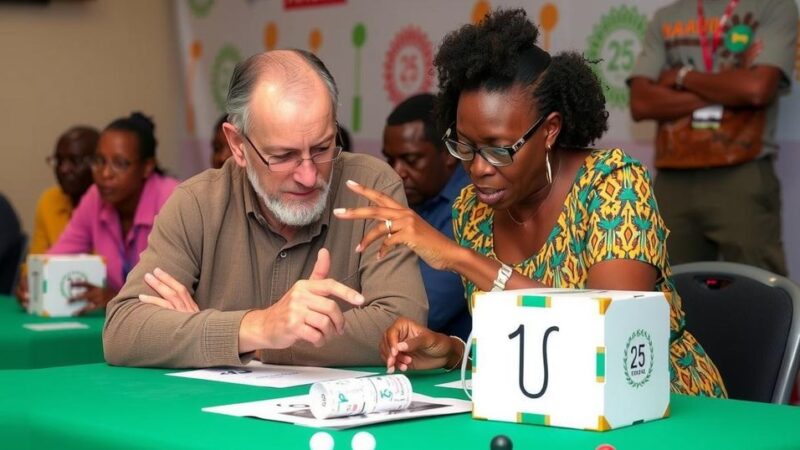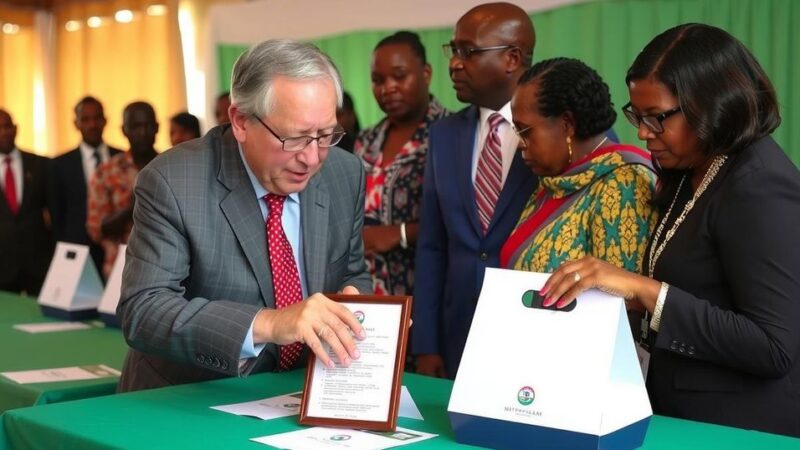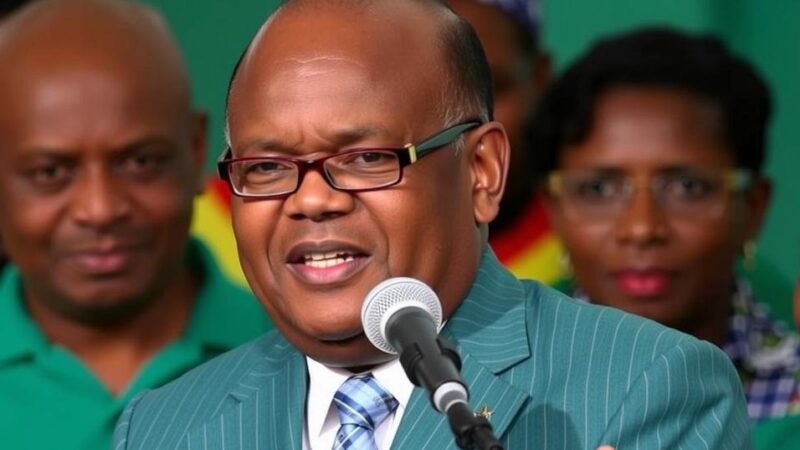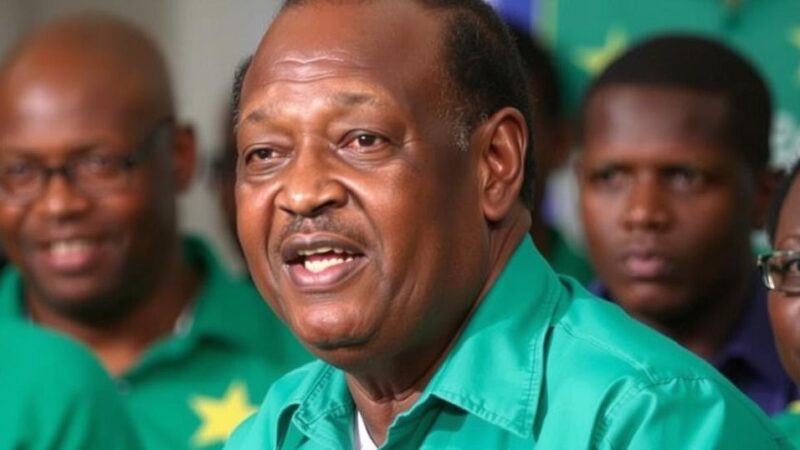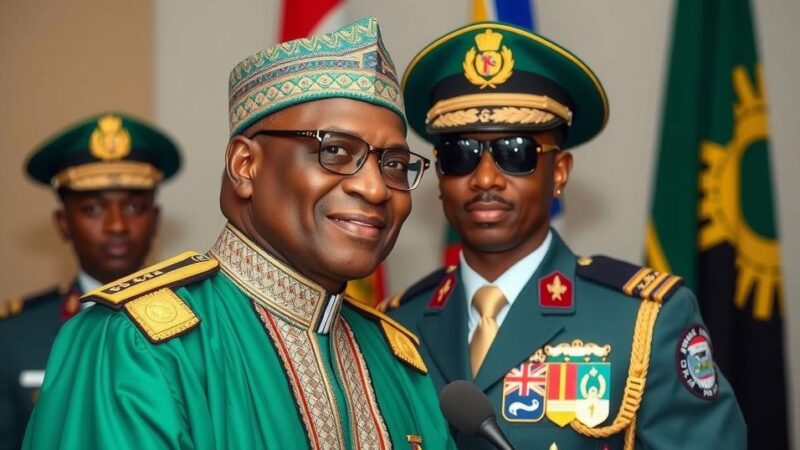Tunisia’s presidential election this Sunday marks a critical juncture in a political climate heavily influenced by President Kais Saied’s consolidation of power. Rights groups decry deteriorating civil liberties and an oppressive atmosphere for dissent. Despite public disillusionment, Saied is poised for reelection amid accusations of a “rigged” process. The political history since the Arab Spring indicates a troubling trend towards autocracy, complicating hopes for genuine democratic engagement in the future.
The presidential election in Tunisia, scheduled for Sunday, is notable as it is the first election since President Kais Saied assumed power as an independent in 2019 and subsequently initiated a “self-coup” in July 2021. This led to the suspension of parliament, the dismissal of the Prime Minister Hichem Mechichi, and a consolidation of executive power under Saied. Human rights organizations, both domestic and international, have expressed grave concerns over the deterioration of civil liberties, freedom of speech, and the rise in arbitrary detentions targeting the President’s critics under Saied’s regime. Despite pervasive public dissatisfaction with party politics, many analysts anticipate that Saied will secure a second term in an election that observers characterize as “rigged” in favor of the incumbent. Tunisia’s journey since the 2011 Arab Spring has witnessed both triumphs and setbacks. Initially celebrated for its democratic progression following the Jasmine Revolution that ousted the long-standing dictator Zine El Abidine Ben Ali, Tunisia’s enthusiasm for political engagement faced a decline over the years. The assassination of prominent politicians in 2013 did not halt Tunisia’s democratic transition, largely due to the intervention of significant civil society groups that upheld democratic principles, earning them the Nobel Peace Prize in 2015. However, Tunisia’s democracy was fraught with instability, experiencing nine inconsistent governments within a decade. Unemployment, economic strife, and religious tensions persisted, casting a shadow over political processes. The final parliament preceding its dissolution was marred by chaos and contention among its members, at times resorting to physical altercations. Kais Saied’s presidency has ushered in an era of discontent and regression. The current election features a limited roster of candidates, severely hampered by restrictions imposed by the Independent High Authority for Elections (ISIE). Critics of the president languishing in jail on dubious charges further undermine the integrity of the electoral process, with a notable number of these detainees being major political figures, such as former Ennahdha leader Rached Ghannouchi. Tunisia’s judiciary, having been effectively stripped of independence following Saied’s restructuring actions, faces limitations that inhibit its capability to function impartially. Similarly, the media landscape has seen a chilling effect, with a clampdown on freedoms stemming from the controversial Decree 54 enacted in 2022. This legislation, which criminalizes potential misinformation, has stifled dissent and silenced opposition voices. Civil society groups, once vibrant in their activism, have seen many leaders arrested, further compounding the complexities surrounding public discontent. Although sporadic protests against Saied’s administration have occurred, they lack the fervor of earlier movements, reflecting a broader hesitance among the populace to organize in opposition to current leadership constraints. The upcoming presidential election, marred by the lack of credible candidates and a compromised political environment, is unlikely to resolve Tunisia’s multifaceted issues, raising concerns for the future of the nation’s democratic aspirations and civil liberties.
The political situation in Tunisia is dire, characterized by the centralization of power under President Kais Saied and the continued repression of dissenting voices. This election is pivotal as it occurs in the wake of Saied’s controversial actions to consolidate power and suppress political opposition. Since the 2011 revolution, Tunisia has grappled with establishing a stable democracy, facing challenges that include economic hardship, political jostling, and a concerning erosion of civil liberties. The measure of success of this electoral process will be closely scrutinized in light of these historical struggles and the present political landscape.
The upcoming presidential election in Tunisia represents a significant moment in the country’s evolving political narrative. However, the legitimacy and potential for meaningful reform are severely undermined by an oppressive regime, limited candidate choices, and the systematic curtailment of fundamental rights. The context surrounding this election raises critical questions about Tunisia’s capacity to emerge from its current political malaise into a more democratic and just society.
Original Source: www.aljazeera.com

